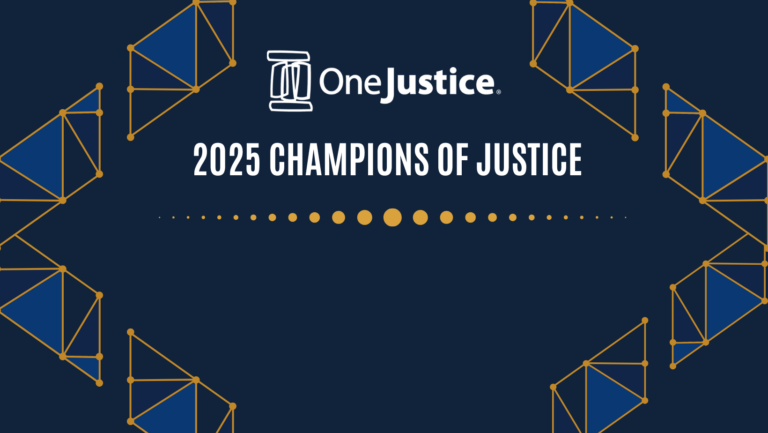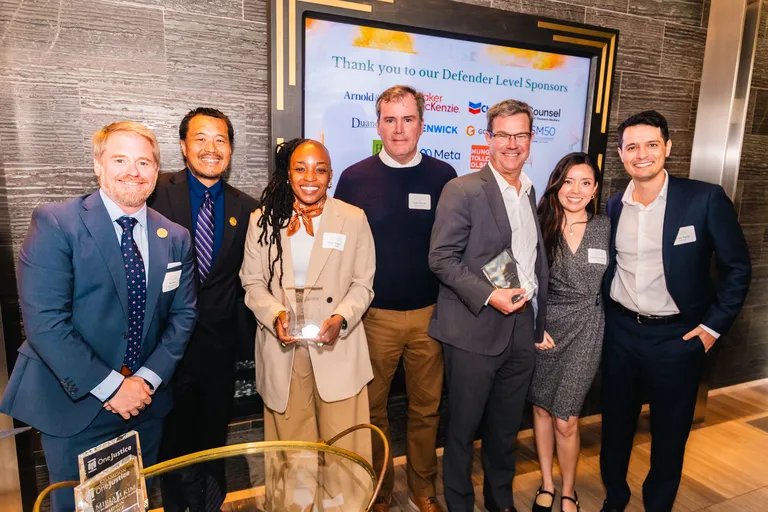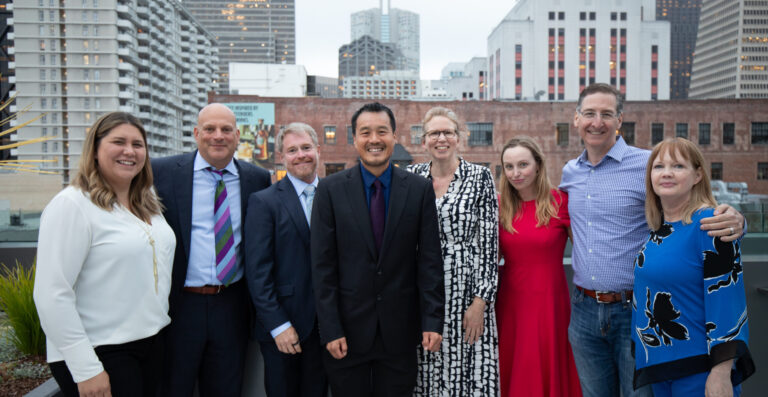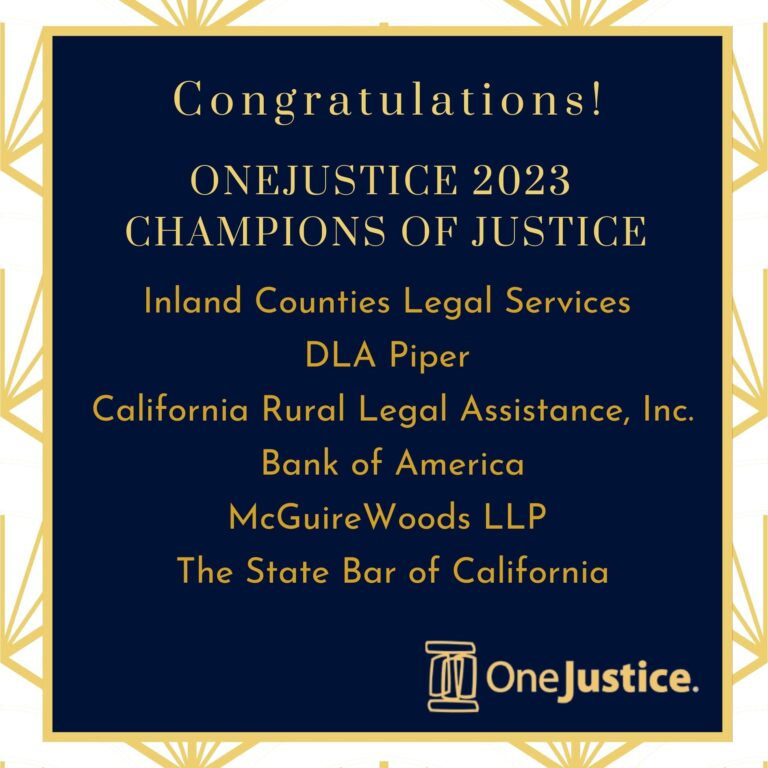
Announcing: OneJustice’s 2025 Champions of Justice
OneJustice is proud to announce the recipients of our 2025 Champions of Justice Award: Disability Rights California, Lawyers’ Committee for

OneJustice is proud to announce the recipients of our 2025 Champions of Justice Award: Disability Rights California, Lawyers’ Committee for

This year, OneJustice honored our 2024 Champions of Justice – incredible OneJustice partners from the nonprofit legal services sector and

On June 22nd, 2023, OneJustice held its annual Opening Doors to Justice gala, gathering the legal service community to ignite

On Thursday, June 22, 2023 OneJustice will honor six Champions of Justice. This year’s awardees are Inland Counties Legal Services,